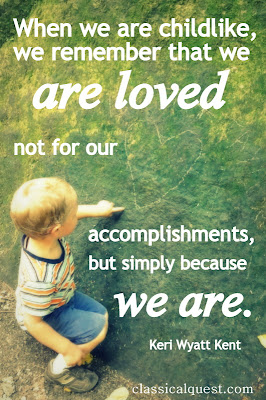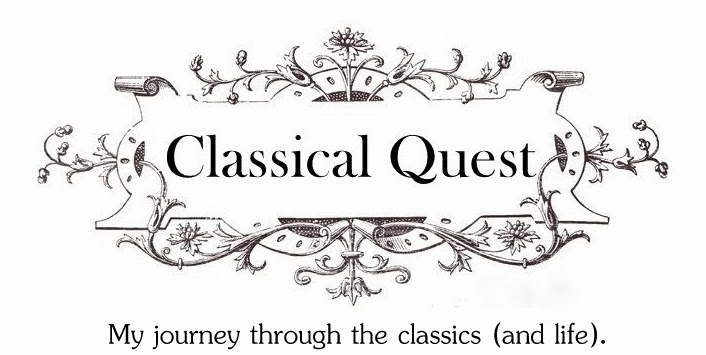I've recently managed to squeeze in a bit of modern side reading in addition to my classics regimen. Today I'm reviewing Listen: Finding God in the Story of Your Life by Keri Wyatt Kent. I admit, I don't often take time to read Christian self-help books -- though I probably should! I decided to read this book on a whim. I was drawn to the title when it occurred to me that my listening skills needed some improvement. LISTEN helped me turn down the volume of my own voice and hone in on what God and others have to say to me.
What would happen to you if you learned how to really listen -- how to listen to God through your life, through other people, and through spiritual practices?
What if I could listen, not just to get good at a skill, but for the purpose of transforming my life and relationships?
What would happen to you as a person if you knew that you were heard, and loved, and that you had the ability to love and listen to others?
These are some questions Keri Wyatt Kent explores in her book Listen: Finding God in the Story of Your Life.
Listening to the voice of Love.
I must give up trying to hear all voices and tune in to just One.
Last week I felt like I was three steps behind in every area of my life. I was weary and discouraged. Then one afternoon -- quite out of the blue -- my 64 year old neighbor, Mr. G, called to say "You've got the night off, Adriana, I'm bringing over homemade chicken noodle soup!"
Mr. G showed up at my back door with a large pot of fragrant soup full of homemade noodles. He smiled at the bubbly chatter of my children. They showed Mr. G their special treasures: basketball medals, a new Hex bug, art work. My three year old smiled shyly and peered at Mr. G from behind me. During dinner we all laughed as the baby slurped up noodles. After dinner Mr. G played relaxing jazz piano while my husband accompanied him on guitar. Some of my children danced; some cuddled on my lap. I felt satiated. It was really wonderful.
The next day I talked to Mr. G over the phone. I told him that his gifts of soup and kindness had come at just the right time. His visit had boosted my spirit.
"I was just listening to the voice of the Father," he said. "When He tells me to make soup for my neighbors, I make soup."
Not only was I blessed, I was challenged. I want to be that person who listens to the voice of the Father too.
. . . the whole point of listening, of finding God in your story [is] to know Him better. Sure you need to know yourself, but not just so you can be more self- aware. It's so that you can be more God-aware.
But sometimes it is hard to decipher when the voice is God and when it's just me. As Kent says in Listen:
God always speaks with the voice of love. That doesn't mean that He always tells you what you want to hear. The voice that says, "Do the right thing," or, "Its going to be all right" -- that's God. The voice that says, " You have screwed up again, so bad that you're unlovable" -- that's not God's voice. He calls forth the best in us but not by condemning or shaming us. He does indeed call us beloved.
 |
| "I ask myself who I am and what I love so that I can take it into the world and share something only I can give." |
Listening to God's voice in my life.
I used to grapple with this question: How do I know what the will of God is for my life?
Looking at what brings you joy is a good first step toward listening in your life. By noticing what brings you joy, you get a picture of the unique way that God created you.
Kent gives some good suggestions for ways to hone in on the things that give us real joy. She shares what gives her joy and exhorts her readers to pay attention to what they love.
Jesus said that He came that our joy would be full. Knowing what you love, noticing the blessings of God -- that is the beginning of listening to Him.
Listening to God in others.
Most of us just want to be heard, to be understood. When we listen, we offer that gift of understanding to others. When we listen we communicate love.
As a wife and mother of five children, I am a sounding board. There is a lot of chatter in my home! My children are constantly exploring new ideas. A ceaseless stream of details that might seem tedious are important for them to relay. It's validating to feel
heard. When I listen, I'm giving each member of my family a valuable gift. One of the most important lessons I brought away from
Listen was that listening has the power to transform relationships. Kent quotes authors Dave Ping and Anne Clippard:
Real listening requires a level of sacrifice. It means dying to ourselves and our agendas.
Listening to God through pain.
Looking back over the course of my life up to now, I can see that my greatest struggles have helped me grow. As Kent says,
Listen to your struggles, but then listen to the voice of love that speaks through those struggles . . . Your struggles are unique, but they also connect you to other people and give you a platform from which to shout out the voice of love to others.
Listening as a Spiritual Discipline.
Through listening our spiritual practices will be transformed.
Find a quiet place where you can listen, where you can perhaps read a bit of scripture or just pour out your heart to God . . . offer the Spirit a landing strip in the uneven ground of your life. See what happens. God's is the only voice that will ultimately assure you of your own significance.
To listen to Scripture we have to read and ponder the truth
slowly. Allowing the Word renew your mind takes time. We must resist the urge to be in a hurry. The Word of God is a love letter to us. As God's Beloved, we linger over it.
Kent describes an ancient practice of Lectio Divina which increased her ability to listen to the Word:
The Latin words Lectio Divina mean "Divine Word." There are various forms of this method, but the common ground the share is this: read a short passage slowly, several times, and listen for God to speak to you personally through it. You spend lots of time just being silent, waiting for God to speak through the text, to your heart. It's a simple method that will allow you to try "formational reading" or "spiritual reading" that lets you listen to the text, lets it speak to you.
Kent gives an example of when she practiced this and the words "don't be afraid" stood out to her:
Now, there are still times I get scared. But rather than just look at the Bible and say, "It says we shouldn't be afraid," I can look at that passage and say, "Here's where God said, Keri, don't be afraid." . . . It was His word to me, His interaction with me, something I needed to not only know but also to act on.
Listening in Prayer.
Prayer is not just about what I have to say; it is a conversation. By listening with a trusting, discerning spirit I can respond to God's voice of love.
God cares enough about me to initiate conversation and relationship. I am the beloved. I am not just the seeker, I am the sought. I am the object of God's affection. It's a truth that demands a response.
Ulimately,
Listen: Finding God in the Story of Your Life is a book which helps you find
love in the story of your life. Isn't what we all long for?
As God's Beloved, I am not just someone who has mastered some good listening techniques. I am the Beloved. I have received love, heard God's voice calling me Beloved and made that part of my identity. I am a listener. Because of God's love for me, I want to hear His loving words. God . . . has put a desire in my soul, and I long to listen.
 |
| Permission is granted to pin this image to Pinterest. |
To purchase
Listen for your Kindle go
HERE.
To visit Keri Wyatt Kent's blog go
HERE.























What does the character of Hester Prynne have to show us about overcoming a social stigma?